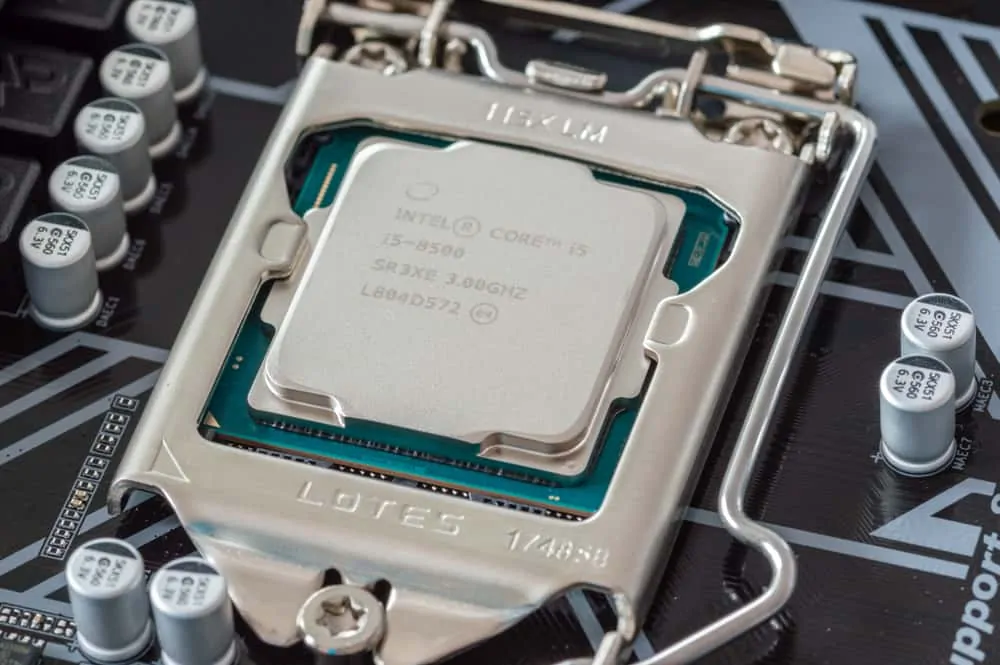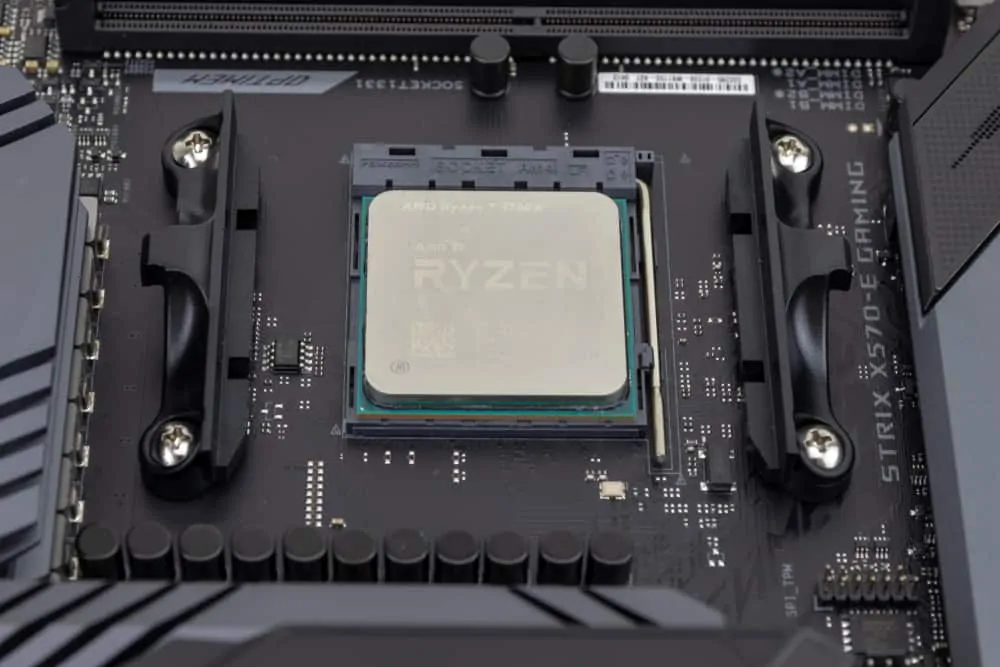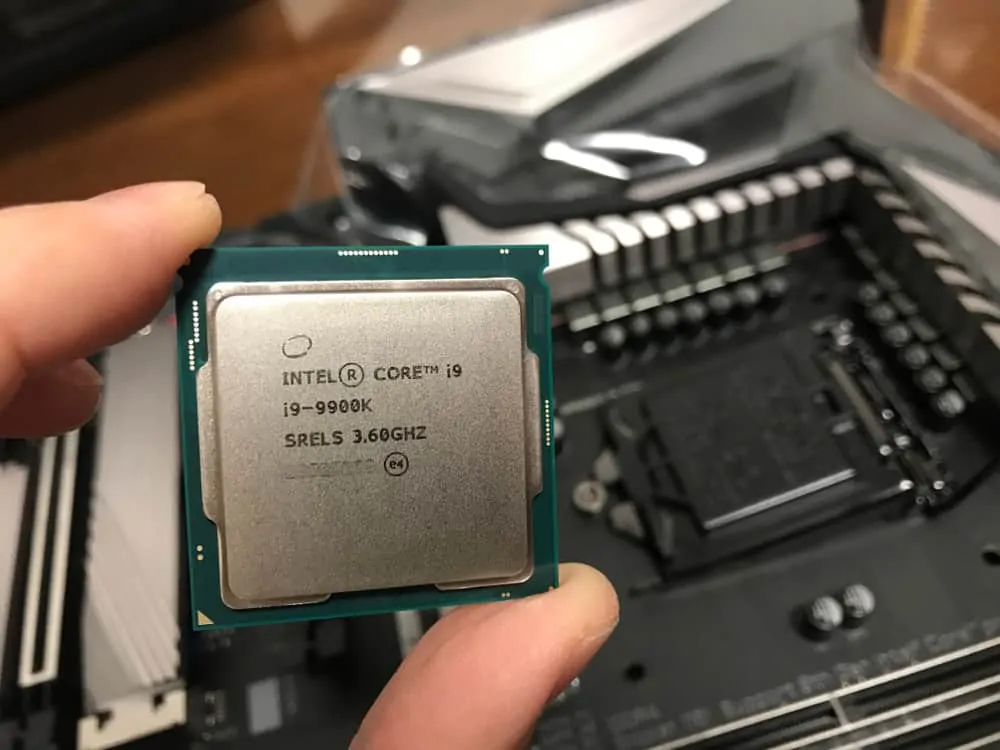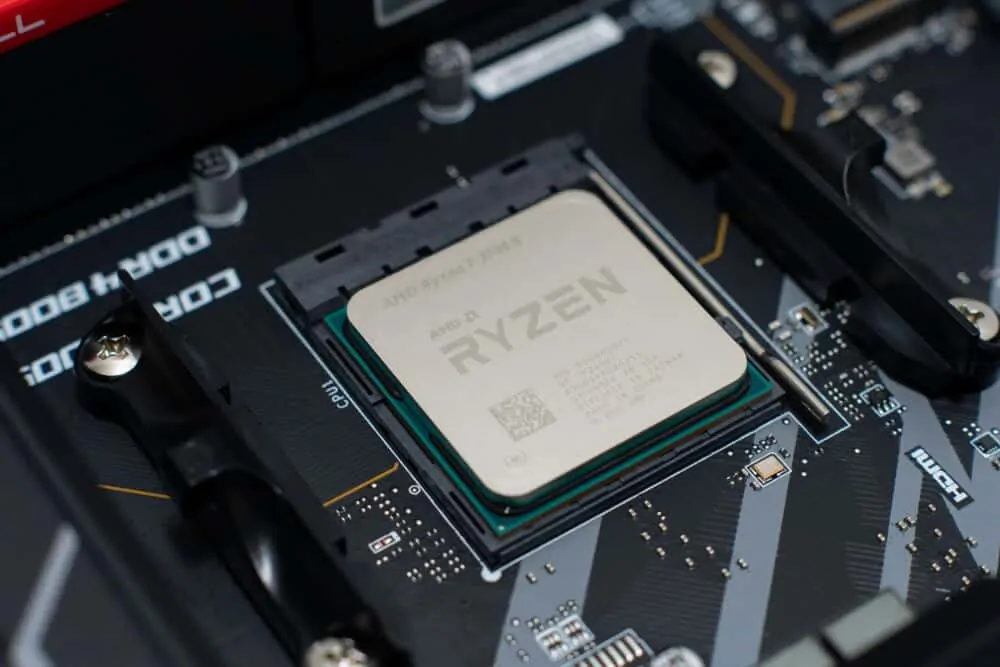Ryzen 7 2700X vs i7 9700K: Number of Cores and Threads
“Core” is a term used to define the number of independent central processing units (CPUs) in a single processor chip.
This affects the performance of a processor. In theory, the more cores in a processor, the faster the processor can handles tasks.
A processor also has another feature called threads – the number of sequences of instructions that a single CPU core can handle. The higher the threads, the more concurrent instructions the processor can handle simultaneously.
Ryzen 7 2700X is an 8-core, 16 threads processor while Intel i7 9700K is 8-cores, 8 threads.
Based on the details I provided above, comparing AMD Ryzen 7 2700X and Intel Core i7 9700K for Cores and Threads, Ryzen 7 2700X is a better processor.
Ryzen 7 2700X vs i7 9700K: Maximum Clock Speed
Clock speed or frequency is another performance feature of a processor. The Clock speed of a processor is the number of processes the processor can complete in one processing cycle.
The more tasks that a processor can get done within one cycle, the faster your computer.
AMD Ryzen 7 2700X has a base speed of 3.7 GHz but it can go up to 4.3 GHz. However, Intel i7 9700K comes with a base speed of 3.60 GHz and a max speed of 4.90 GHz.
Comparing Ryzen 7 2700X and i7 9700K for clock speed, Intel Core i7 9700K is a better processor.
With its maximum speed of 4.90 GHz, it beats AMD Ryzen 7 2700X, which can be boosted up to a maximum clock speed of 4.3 GHz.
Ryzen 7 2700X vs i7 9700K: L3 Cache
To process tasks fast, a processor requires fast memories known as Cache. There are 3 caches in a processor – L1, L2 and L3 caches.
The cache stores tasks that the processor executes. For the purpose of this comparison guide, I use the level 3 (L3) cache.
The bigger a cache, the more tasks it can store, and the faster a processor is.
Comparing the levels 3 caches of both processors, Ryzen 7 2700X wins with a 16 MB L3 cache. Intel Core i7 9700K has an L3 Cache of 12 MB.
Ryzen 7 2700X vs i7 9700K: Max Supported Memory
In the last section, I mentioned that the cache supports the processor to process tasks fast. However, the cache size is limited. Therefore, the processor receives additional support from the system memory.
It then means that the more the system memory available to the processor, the faster the processor. However, every processor specifies the maximum system memory it can support. We use this figure to compare how fast a processor can potentially perform.
Ryzen 7 2700X supports a maximum system memory of 64 GB while i7 9700K supports up to 128 GB.
Comparing Ryzen 7 2700X vs i7 9700K for maximum supported memory, Intel Core i7 9700K is a better processor.
Conclusion
The last 4 sections compared the performance features of AMD Ryzen 7 2700X and Intel Core i7 9700K.
Out of the 4 features compared, Ryzen 7 2700X proves to be better with the number of CPU Cores and level 3 cache.
However, the Intel Core i7 9700K is better, with maximum clock speed, and maximum supported memory.
Overall, my conclusion is that both processor tie for performance. To help me make a final recommendation, I will consider the prices of the 2 processors.
As of the time of updating this guide, the best deal available for AMD Ryzen 7 2700X was $217.91. However, the best deal available for the Intel Core i7 9700K was $265.95.
Based on all the factors above, I recommend the AMD Ryzen 7 2700X processor.
I hope you found this comparison/buying guide helpful. If you did, click on “Yes” beside the “Was this page helpful” question below.
You may also express your thoughts and opinions by using the “Leave a Comment” form at the bottom of this page.
Finally, to read more laptop buying guides, visit our Processor Buying Guides page. You may also see more Processor Specs and deals or compare more processors.



